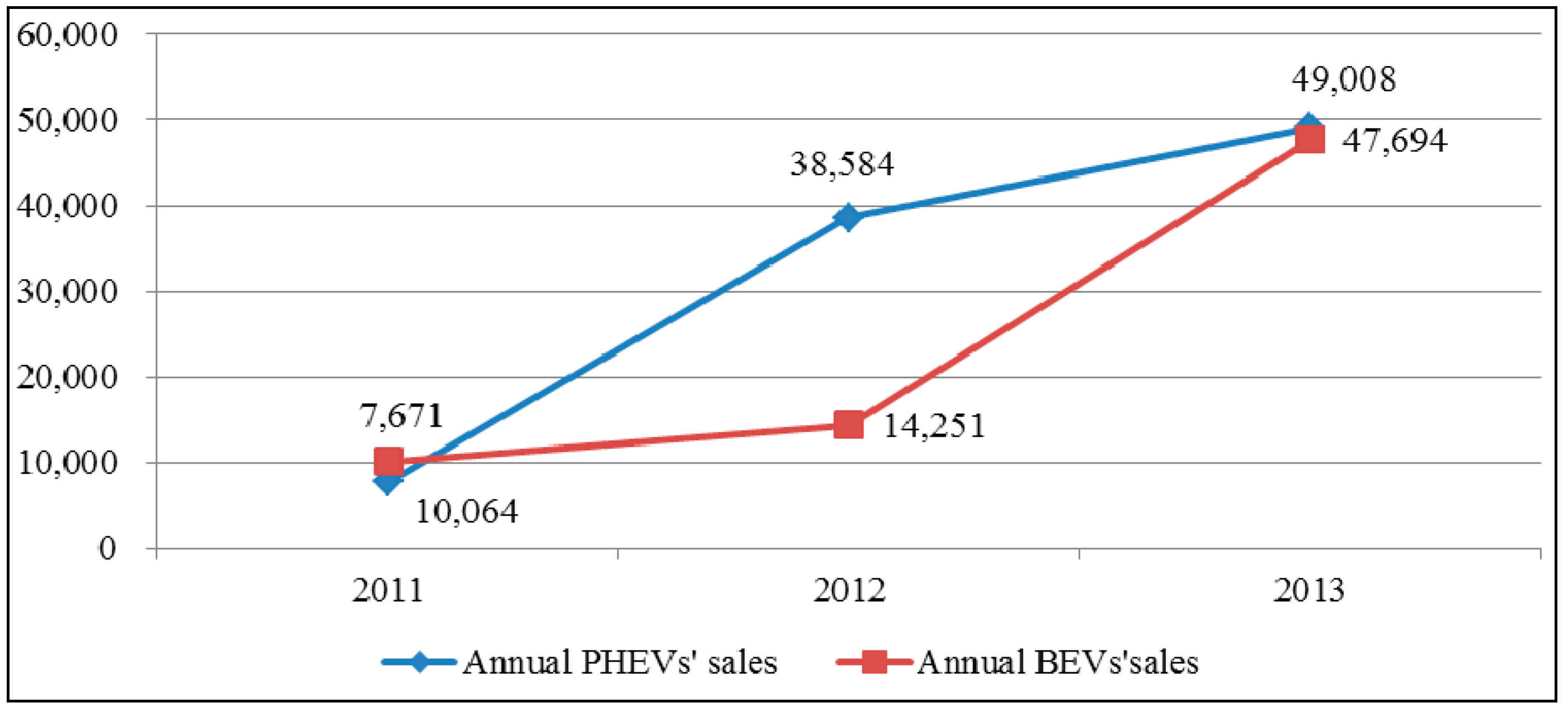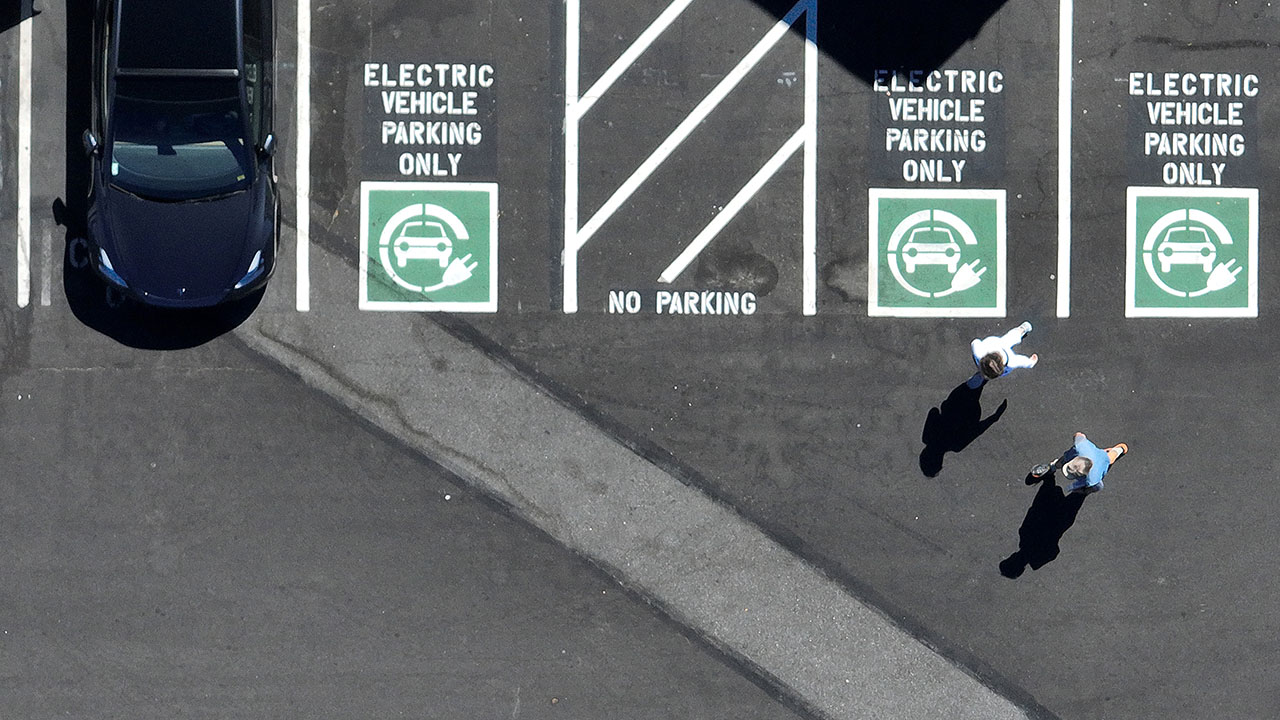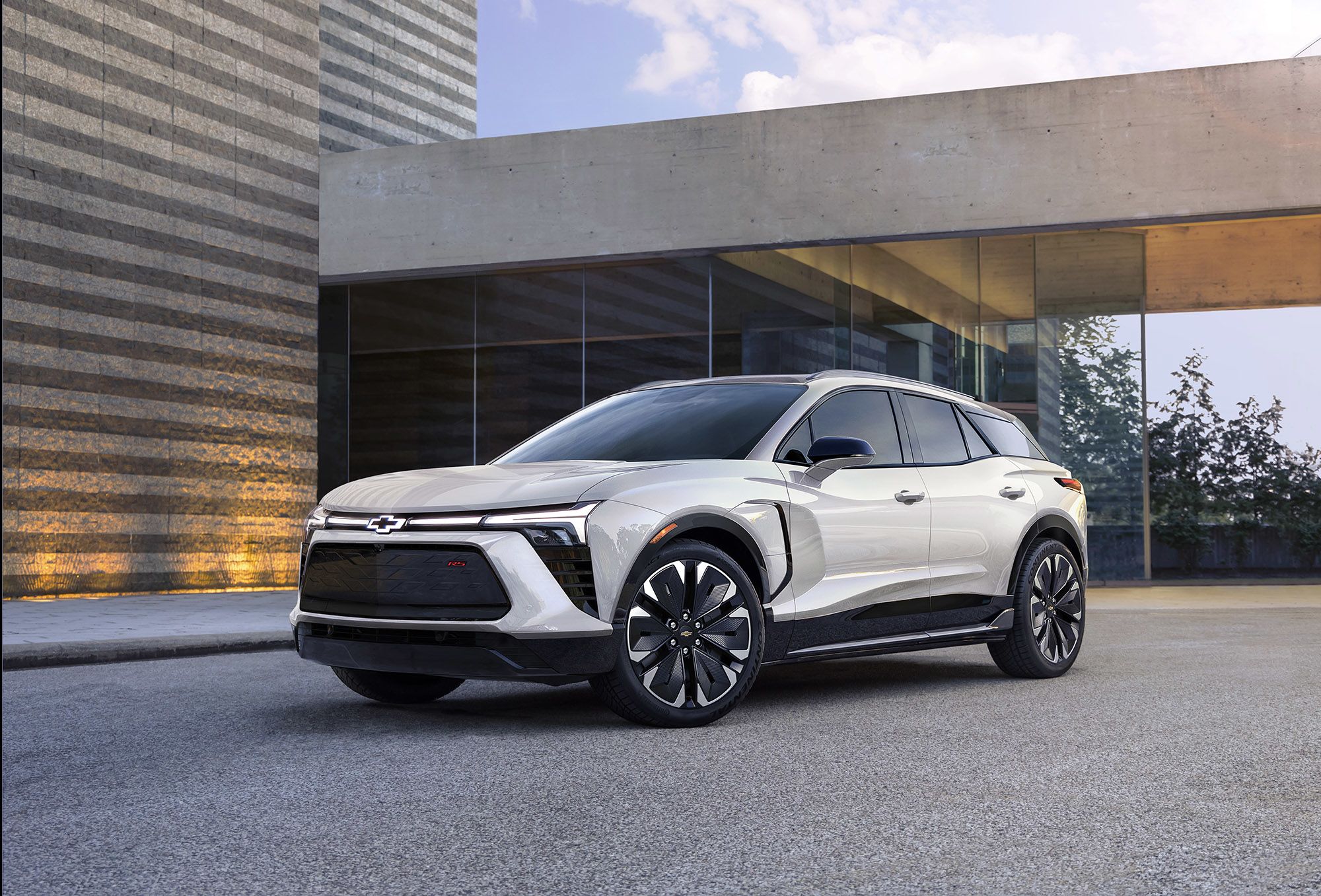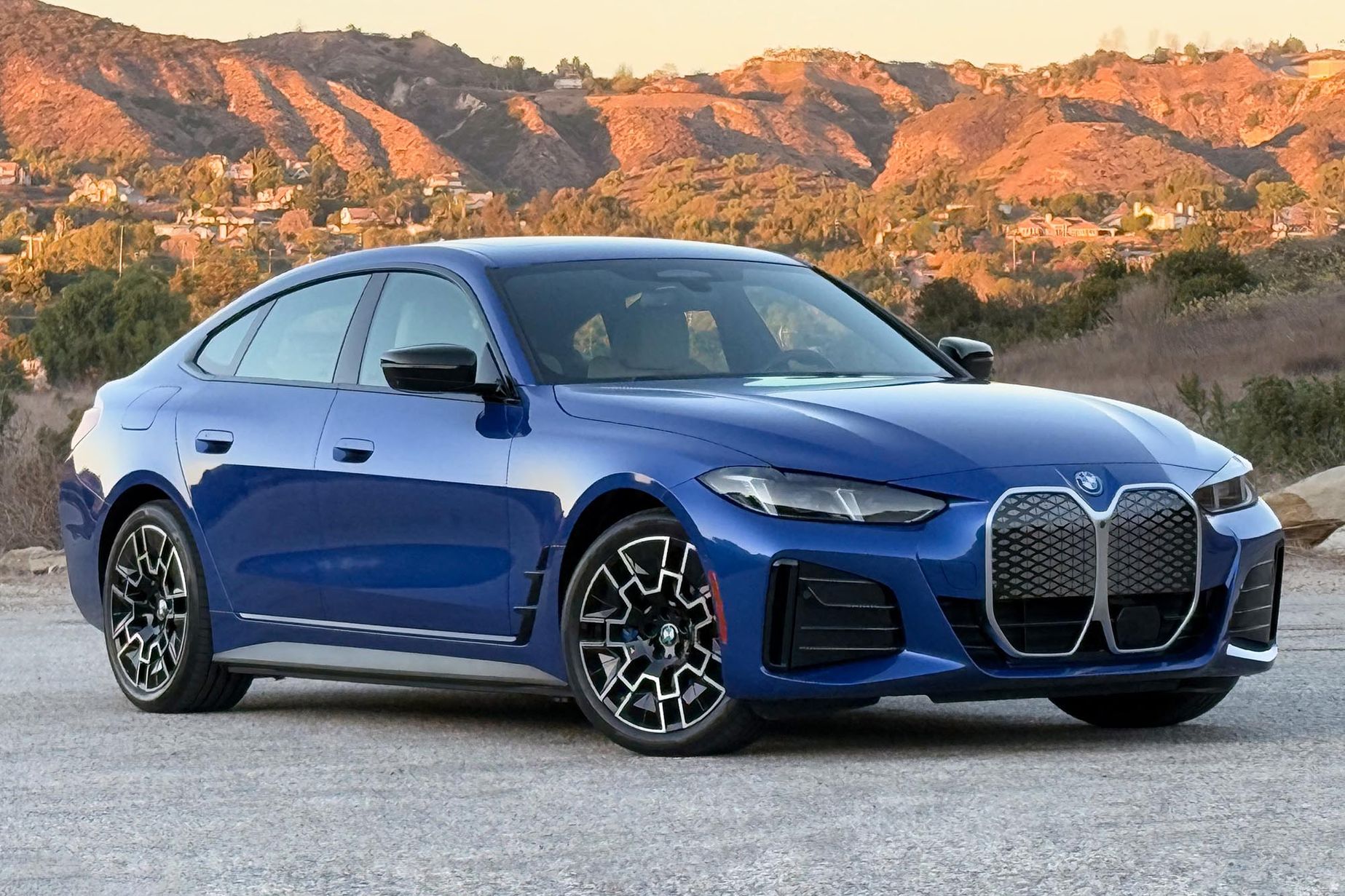Electric Vehicle Support Policies in Each US State

Electric vehicles (EVs) are rapidly transforming the way we think about transportation, sustainability, and energy consumption. As states across the U.S. recognize the benefits of reducing emissions and fostering clean energy technologies, various Electric Vehicle Support Policies in Each US State have emerged. These policies encompass financial incentives, infrastructure development, and regulatory measures aimed at promoting EV adoption and integrating more sustainable practices into everyday life. In this article, we will explore state-level initiatives, their implications for consumers, and the future of electric mobility in America.
Introduction: The Rise of EVs and State-Level Incentives

The rise of electric vehicles has been marked by significant technological advancements, growing environmental awareness, and increasing consumer demand for greener transportation options. According to recent studies, EV sales have surged over the past decade. With the global push for sustainability and carbon neutrality, states are recognizing the importance of supporting this transition through targeted policies and programs.
State-level incentives play a pivotal role in facilitating EV adoption. By offering rebates, tax credits, and expanding charging infrastructure, states can significantly influence consumer behavior and investment in electric mobility. This article delves into the various Electric Vehicle Support Policies in Each US State, examining leading examples and the challenges each state faces as they move toward a more electrified future.
California: A Pioneer in EV Adoption

California stands out as a leader in electric vehicle adoption. The state’s aggressive policies and progressive regulations have positioned it as an exemplar for other states looking to increase their EV market share.
California’s Zero-Emission Vehicle (ZEV) Mandate
One of the cornerstones of California’s commitment to electric vehicles is its stringent Zero-Emission Vehicle (ZEV) mandate.
This regulation requires automakers to sell a certain percentage of zero-emission vehicles, including battery electric, plug-in hybrid, and hydrogen fuel cell vehicles. The ZEV mandate has not only encouraged manufacturers to innovate but also created a competitive market for electric vehicles.
By establishing a clear benchmark for sales, California fosters a sense of urgency among automakers to invest in cleaner technologies. The state aims to have 1.5 million EVs on the road by 2025, pushing manufacturers to ramp up production and research into new electric models.
Incentive Programs and Rebates
To further bolster EV adoption, California offers a variety of incentive programs and rebates for consumers.
The California Clean Vehicle Rebate Project (CVRP) has provided substantial rebates to eligible buyers, making electric vehicles more financially accessible. In addition, low-income households can receive additional financial assistance through the Enhanced Fleet Modernization Program (EFMP).
These incentives make a significant difference in the purchase price of electric vehicles, effectively lowering barriers for prospective buyers. By investing in these programs, California demonstrates how state-level policies can promote environmental sustainability while bolstering the economy.
Investment in Charging Infrastructure
A robust charging infrastructure is vital to the success of electric vehicles, and California is at the forefront of building extensive networks.
The California Energy Commission has invested millions in public charging stations, aiming to establish a comprehensive network that meets the needs of EV drivers statewide. Initiatives such as the California Electric Vehicle Infrastructure Project (CALeVIP) focus on installing accessible fast-charging stations in urban areas and along major highways.
As charging accessibility improves, drivers can enjoy greater confidence in their ability to travel longer distances without range anxiety, ultimately driving higher rates of adoption.
New York: Building a Robust EV Ecosystem

New York has also made significant strides in creating a favorable environment for electric vehicles.
New York’s Drive Clean Rebate Program
Similar to California, New York has implemented the Drive Clean Rebate program, which offers rebates to those who purchase or lease eligible electric vehicles.
The rebate amounts vary depending on the type of vehicle and its battery capacity, providing additional incentives for consumers considering EV options. The initiative not only makes electric vehicles more affordable but also sends a strong signal about the state’s commitment to reducing greenhouse gas emissions.
Focus on Public Charging Stations
In tandem with financial incentives, New York is focusing on enhancing its public charging infrastructure.
The state plans to install thousands of new charging stations in urban centers and rural communities alike. This effort aims to ensure that all residents have access to convenient charging solutions, regardless of their location. Moreover, collaboration with private sector partners is essential for expanding the reach and availability of charging points.
By addressing both financial and infrastructural needs, New York exemplifies a holistic approach to promoting electric vehicles.
Texas: EV Adoption in a Traditionally Gas-Powered State

Texas presents a unique case for electric vehicle adoption due to its traditionally gas-powered automotive culture and vast geography.
Challenges and Opportunities in Texas
Despite being home to some of the largest oil reserves in the U.S., Texas recognizes the growing shift towards electric mobility.
However, challenges remain, including an existing infrastructure primarily focused on gasoline vehicles and varying levels of public awareness regarding EV benefits. To counteract these obstacles, the state is working to improve education about electric vehicles and their advantages, such as lower operating costs and environmental impact.
Additionally, Texas showcases an opportunity for growth; the state has a burgeoning renewable energy sector that can support EV charging with clean energy sources, particularly solar power.
Emerging Private Sector Initiatives
Given the slow pace of policy changes at the state level, private companies are stepping in to fill the void.
Companies like Tesla have established significant charging networks throughout Texas, prompting local utilities to explore partnerships for expanding public charging infrastructure. Other businesses are developing workplace charging solutions to cater to employees who drive electric vehicles.
The collaboration between private entities and local governments represents a promising avenue for overcoming hurdles to EV adoption in Texas and shows how diverse stakeholders can work together for mutual benefit.
Florida: Sunshine State, Electric Future?

Florida’s approach to electric vehicle support has evolved gradually, positioning itself as a player in the EV landscape.
Current EV Policies and Incentives in Florida
Florida has introduced several initiatives aimed at encouraging electric vehicle adoption, including tax incentives and grants for EV purchases.
The state offers a sales tax exemption for electric vehicles, along with rebates for individuals who install EV charging stations at their homes. While these programs may not be as extensive as those in other states, they mark a significant step toward embracing electric mobility.
Moreover, the state’s diverse geography presents opportunities for innovative charging solutions, especially with charging stations near tourist attractions and popular destinations.
Potential Future Developments
Looking ahead, there is potential for Florida to enhance its electric vehicle support policies.
Recent discussions among policymakers include the possibility of increasing incentives and expanding funding for charging infrastructure. As public attitudes shift towards sustainability, there is an opportunity for Florida to leverage its position as a popular tourism destination to promote electric vehicles.
Additionally, partnerships with local utilities could pave the way for cleaner charging solutions, allowing Florida to harness its abundant solar energy resources.
Colorado: Mountain State, Electric Mobility
Colorado is committed to becoming a leader in electric mobility through strategic policies and initiatives.
Renewable Energy Integration with EV Charging
Colorado’s investments in renewable energy align closely with its goals for electric vehicle adoption.
The state’s commitment to integrate renewable energy sources into its power grid creates an ideal environment for promoting electric vehicles. By utilizing clean energy for charging, Colorado enhances the overall sustainability of the electric vehicle ecosystem.
The state has also developed programs that encourage the installation of residential solar panels, enabling homeowners to charge their EVs using locally generated solar power. This synergy between renewable energy and electric mobility presents a model for other states to emulate.
Incentives for EV Purchases
Colorado has enacted several incentives geared specifically towards potential electric vehicle buyers.
The state provides a tax credit for individuals who purchase or lease an electric vehicle, with the potential for additional benefits depending on specific circumstances such as income level. Furthermore, local municipalities often offer their own incentives, leading to a patchwork of supportive policies that can enhance accessibility to electric vehicles.
By ensuring a variety of purchasing incentives, Colorado demonstrates a commitment to promoting EV adoption as part of its larger environmental goals.
Washington State: Clean Energy and Transportation Goals

Washington State is making significant strides in aligning its clean energy ambitions with electric vehicle support policies.
Statewide EV Infrastructure Plans
Washington has taken proactive steps to develop a robust statewide EV infrastructure.
The Washington State Department of Transportation has launched various initiatives to expand the network of public charging stations. The state’s goal is to facilitate long-distance travel for electric vehicle owners, thereby eliminating concerns around range anxiety.
Moreover, the state’s commitment to adopting electric buses and integrating them into public transit systems showcases an impressive forward-thinking approach to transportation.
Rebates and Tax Credits
In addition to infrastructure development, Washington offers several financial incentives for electric vehicle buyers.
The state provides a sales tax exemption for qualifying EV purchases, along with specific rebates based on the vehicle’s battery capacity. These incentives help to lower the overall cost of ownership and stimulate interest among consumers.
Furthermore, Washington’s Clean Cars Rule aims to reduce greenhouse gas emissions from new vehicles sold, which inherently encourages the transition to electric mobility.
Oregon: West Coast EV Leadership

Oregon continues to lead the charge in electric vehicle adoption and support on the West Coast.
Oregon’s Clean Vehicle Rebate Program
The Clean Vehicle Rebate Program in Oregon is one of the most robust in the nation.
This program provides substantial rebates for individuals purchasing electric vehicles, making them more accessible to a broader audience. Income-based incentives further ensure that low-income households can also participate in the transition to electric mobility.
By prioritizing inclusive programs, Oregon’s policies reflect a commitment to equitable access to clean transportation.
Focus on Rural Electrification
Oregon acknowledges the importance of extending electric vehicle infrastructure beyond urban centers.
Efforts to promote rural electrification through the establishment of charging stations in remote areas demonstrate the state’s understanding of the need for comprehensive coverage. Moreover, educational initiatives focused on rural communities aim to raise awareness about the benefits of electric vehicles and available incentives.
This comprehensive approach helps to ensure that all citizens, regardless of location, have access to electric mobility solutions.
Illinois: Midwest EV Adoption
Illinois is taking steps to foster electric vehicle adoption in the Midwest, but challenges remain.
EV Infrastructure Development
Illinois is actively working on expanding its EV infrastructure to support increased adoption.
Significant investments in public charging stations and partnerships with utilities are crucial in building a strong network for EV drivers. Additionally, the state has initiated various pilot programs focused on testing new technologies and infrastructure solutions.
As Illinois continues to develop its infrastructure, it must also address challenges related to public awareness and acceptance of electric vehicles.
Financial Incentives and Rebates
Illinois has implemented several financial incentives to encourage electric vehicle purchases.
These incentives include state tax credits for buying electric vehicles and rebates for installing home charging stations. By lowering the upfront costs associated with EV ownership, Illinois hopes to motivate consumers to consider electric options.
Despite positive steps forward, ongoing advocacy is necessary to keep expanding these initiatives and enhance public understanding of the benefits of electric vehicles.
Massachusetts: Northeastern EV Initiatives
Massachusetts has established a framework for electric vehicle support that reflects its commitment to innovation and sustainability.
Comprehensive EV Strategy
Massachusetts’ Electric Vehicle Incentive Program provides significant rebates for individuals purchasing electric vehicles.
The state has designed a comprehensive strategy that includes a focus on expanding charging infrastructure, particularly in urban settings where demand is high. This multimodal approach aims not only to increase the number of EVs on the road but also to ensure that drivers have convenient access to charging stations.
Furthermore, Massachusetts emphasizes community outreach campaigns to educate the public about the long-term benefits of electric vehicles.
Investments in Research and Development
Recognizing the importance of technological advancements, Massachusetts is investing in research and development related to electric vehicles.
Collaboration with universities and tech companies is fostering innovation within the state, helping to create a leading environment for EV technology. Through grants and subsidies for startups focusing on electric mobility, Massachusetts is positioning itself as a hub for clean transportation solutions.
Pennsylvania: EV Growth in the Keystone State
Pennsylvania is increasingly recognizing the potential of electric vehicles as a means of achieving environmental and economic goals.
Legislative Support for EV Adoption
Recent legislation in Pennsylvania has introduced various incentives and grants to support electric vehicle adoption.
Initiatives such as the Driving Pennsylvania Forward program aim to provide financial assistance for purchasing electric vehicles and setting up charging stations across the state. These legislative actions reflect a recognition of the importance of reducing emissions and creating a cleaner transportation system.
Collaboration with Local Governments
Collaborative efforts with local governments have proven effective in expanding EV initiatives in Pennsylvania.
Local authorities are exploring ways to incorporate electric vehicles into municipal fleets, thus demonstrating a commitment to sustainability. Moreover, partnerships with utility companies and private businesses are essential for creating a comprehensive network of charging stations.
Through these collaborative approaches, Pennsylvania is paving the way for a more efficient and environmentally friendly transportation landscape.
Michigan: Automotive Innovation and EV Transition
Michigan, known as the heart of American automotive manufacturing, is undergoing a significant transformation toward electric vehicle adoption.
Commitment to EV Research and Development
With major automakers headquartered in Michigan, the state is placed strategically to lead in EV research and development.
Investment in EV technology, battery manufacturing, and autonomous vehicles is evident as traditional car manufacturers pivot toward electric options. This shift creates job opportunities and fosters innovation within the automotive sector.
Additionally, Michigan’s collaboration with academic institutions aims to accelerate advancements in EV technologies and enhance workforce training for the industry.
Infrastructure Expansion Efforts
As part of its commitment to electric vehicles, Michigan is focused on improving its charging infrastructure.
The state is actively working to expand public charging networks, making it easier for residents to adopt electric vehicles. Ensuring adequate charging accessibility aligns with the goal of becoming a leader in electric mobility.
By investing in both research and infrastructure, Michigan is positioning itself favorably within the evolving automotive landscape.
Georgia: Southeastern EV Landscape
Georgia has emerged as a key player in the southeastern electric vehicle landscape.
Comprehensive Incentives for EV Buyers
Georgia has established several state-specific incentives to promote electric vehicle purchases.
This includes a tax credit to offset the initial cost of acquiring an electric vehicle, making it more financially feasible for consumers. Additionally, local governments may offer supplementary incentives, further enhancing the appeal of electric vehicles.
These financial tools empower consumers to consider electric options while contributing to statewide goals for reduced emissions.
Investments in Charging Infrastructure
The expansion of charging infrastructure has gained momentum in Georgia, with both public and private efforts underway.
The Georgia Power EV Infrastructure program focuses on increasing public charging availability, allowing for seamless travel throughout the state. Partnerships with various stakeholders ensure that the infrastructure development aligns with consumer demand and usage patterns.
By enhancing accessibility to charging stations, Georgia is creating an environment conducive to electric vehicle growth.
Arizona: Desert State, Electric Drive
Arizona’s climate and geography present unique opportunities for electric vehicle adoption.
Solar Energy Integration
With abundant sunshine year-round, Arizona stands out as an ideal location for integrating solar energy with electric vehicle charging.
State initiatives promote the use of solar panels for residential charging solutions, empowering homeowners to generate their own clean energy while powering their electric vehicles. This symbiotic relationship not only reduces costs for consumers but contributes to the state’s ambitious renewable energy goals.
EV Policies and Incentives
Arizona has enacted various policies and incentives aimed at boosting electric vehicle adoption.
The state offers tax credits for purchasing electric vehicles, along with rebates for installing charging stations. These incentives ensure consumers can take advantage of the long-term savings associated with owning an electric vehicle.
Through continued policy development and strategic investments, Arizona is poised to further its electric vehicle initiatives in the coming years.
Nevada: Gaming and Electric Vehicles
Nevada is increasingly recognizing the role of electric vehicles in shaping the future of transportation, particularly in urban environments like Las Vegas.
Focus on Tourism and Accessibility
As a popular tourist destination, Nevada sees tremendous value in promoting electric vehicles among visitors.
Strategic initiatives aim to establish charging stations near hotels, casinos, and major attractions, ensuring tourists have access to convenient charging options during their stay. This focus on accessibility aligns with the state’s broader goals of promoting sustainable tourism.
State Incentives for EV Purchases
Nevada has implemented a series of incentives to encourage electric vehicle purchases, including rebates and tax credits.
These financial incentives aim to attract both residents and tourists alike, contributing to increased EV adoption. By enhancing the affordability of electric vehicles, Nevada is positioning itself as a forward-thinking state committed to sustainability.
Comparison of State Policies: A National Overview
A comparative analysis of electric vehicle support policies reveals notable differences and similarities among states.
| State | Major Incentives | Charging Infrastructure | Unique Initiatives |
|---|---|---|---|
| California | ZEV Mandate, CVRP | Extensive public charging network | EV bus programs |
| New York | Drive Clean Rebate | Increasing public stations | Strong tourism charging focus |
| Texas | Limited state incentives | Emerging private sector initiatives | Growing renewable energy integration |
| Florida | Sales tax exemptions | Expanding network | Tourism-related charging solutions |
| Colorado | Tax credits and rebates | Investment in renewables | Promoting solar for charging |
| Washington | EV rebates | Comprehensive infrastructure plan | Clean Cars Rule |
| Oregon | Clean Vehicle Rebate | Focus on rural electrification | Inclusive purchasing programs |
| Illinois | Tax credits | Developing infrastructure | Educational outreach |
| Massachusetts | Incentives for research | Urban charging expansions | Community engagement |
| Pennsylvania | Driving PA Forward | Local government collaboration | Municipal fleet electrification |
| Michigan | RD investments | Infrastructure enhancements | Collaboration with academia |
| Georgia | Tax credits | Expanding charging availability | Focus on public-private partnerships |
| Arizona | Tax credits and rebates | Solar panel integration | Promoting clean energy |
| Nevada | Rebates and tax credits | Tourism-focused charging | Sustainable tourism initiatives |
This table highlights the diversity in electric vehicle support policies across the United States, showcasing how different states prioritize electric mobility according to their unique characteristics and challenges.
The Role of Federal Policy in Supporting State Initiatives
While state-level policies are crucial for supporting electric vehicle adoption, federal policy also plays a critical role. Recent federal legislation has aimed to incentivize both consumers and automakers to transition to electric vehicles, including funding for charging infrastructure and tax credits for EV purchases.
Federal policies often complement state efforts by providing additional resources and frameworks for regulatory measures. For instance, the Infrastructure Investment and Jobs Act (IIJA) allocates funds specifically for EV charging infrastructure, enabling states to build upon their existing programs.
Moreover, federal standards for emissions and efficiency guidelines set benchmarks that states can strive to meet, driving consistent progress toward a more sustainable transportation system.
Future Trends and Challenges in State EV Policies
As electric vehicle adoption grows, several trends and challenges are likely to shape the landscape of state policies moving forward.
Increasing Demand for EVs
The demand for electric vehicles is expected to continue rising, driven by consumer preferences for sustainability and advancements in technology.
States must adapt their policies to accommodate this growing interest, ensuring that incentives remain attractive and relevant. This may involve reevaluating rebate amounts, expanding eligibility criteria, or embracing new technologies that enhance EV performance.
Addressing Infrastructure Needs
One of the most pressing challenges facing states is the need for robust charging infrastructure.
As more consumers adopt electric vehicles, states must prioritize the expansion of charging networks to meet the increased demand. This entails not only increasing the number of charging stations but also ensuring that charging solutions are convenient and accessible across various demographics.
Balancing Economic Considerations
Finding the right balance between promoting electric vehicles and addressing economic factors remains a challenge.
States must consider the potential impact of policies on consumers, automakers, and local economies. Striking a balance between incentives and sustainability can ensure that the transition toward electric mobility is economically viable for all stakeholders involved.
Video
Conclusion
Electric vehicle support policies across the United States reflect a growing commitment to sustainability, innovation, and cleaner transportation solutions. From California’s pioneering initiatives to Texas’s emerging private sector collaborations, each state is navigating its unique challenges and opportunities in promoting electric vehicle adoption. As federal policies complement state efforts and evolving trends shape the landscape, the journey toward a greener future will undoubtedly require collaborative approaches, innovative solutions, and dedicated investment. With concerted efforts, the vision of widespread electric mobility can become a reality for all Americans.


